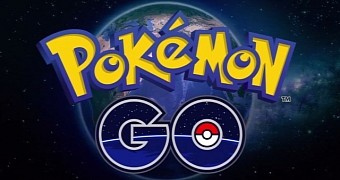Windows Phone has once again been left behind by a pretty big app developer, and this time, more users seem to be tempted to jump ship unless something changes fast.
Niantic, the maker of the this year’s mobile game sensation Pokemon Go, released this new title exclusive to Android and iOS, so not only are users of Windows Phone unable to download it right now, but they are very likely to be left out of the party forever.
The company has so far been tight-lipped on the chances to build a Pokemon Go version for Windows Phone, although it dropped hints that Microsoft users could at some point get the chance to play the game if they have a HoloLens, and this strategy perfectly aligns with the future of the platform (you can read more about why I think that the uncertainty and secrecy surrounding Windows Phone are hurting the platform more than the current lack of apps).
There’s no doubt that Pokemon Go is a niche game, and there are big chances that an important number of Windows Phone users don’t even want the title on the platforms. But playing Pokemon Go for a couple of days on the iPhone, I've finally decided that this game must be on Windows Phone.
And not because it’s such an exciting game (because opinions are still divided here on whether it’s actually a childish game or not), but because it perfectly puts into spotlight what’s happening right now with Windows Phone.
Big app developers still don’t see the universal app opportunity
Microsoft has been pushing for Windows developers to embrace the concept of universal apps, but at the same time, it has also tried to convince those who focus more on Android and iOS to jump on the Windows 10 bandwagon.
And while a number of app makers have indeed invested in universal apps, there are several big names out there that aren’t really interested in doing this. And Niantic seems to be one of them.
Pokemon Go is a mobile-exclusive app, so it doesn’t make sense for the company to develop a universal app that would work on both desktops and smartphones. What it needs is a Windows 10 Mobile version of the game that would bring Microsoft’s smartphone platform in line with Android and iOS and give users here a chance to play it just like everyone else.
But by refusing to do it, Niantic does nothing more than to rub salt into Microsoft’s wound and emphasize one of the biggest problems of Windows phones: developers still don’t see them as a platform that’s worth investing in, and the main reason is the small market share. The latest data provided by Gartner shows that Windows Phone has a share of around 0.7 percent, which is the lowest point the platform has reached in many years.
And yet, although, for Niantic, investing in a Windows Phone version of Pokemon Go doesn’t make sense, there are signs that this can actually happen without spending a fortune during the process.
Pokemon Go is based on the Google Maps API, and although it was believed that, due to Google’s efforts to stay away from Windows 10, the game couldn’t be released on the platform, it turns out this isn’t the case. Not only is the game made in Unity, but there are apps on Windows 10 that are already using the Google Maps API, and with Project Islandwood, Microsoft’s iOS bridge to bring iPhone apps on Windows 10, Niantic could easily release Pokemon Go for Windows Phone.
So Pokemon Go must launch on Windows Phone no matter if you want to play it or not. Pokemon Go can be the living proof for other developers that Windows Phone is still worth a chance. This is what Windows Phone needs right now, and Niantic can be the first company to reignite its growth.

 14 DAY TRIAL //
14 DAY TRIAL //